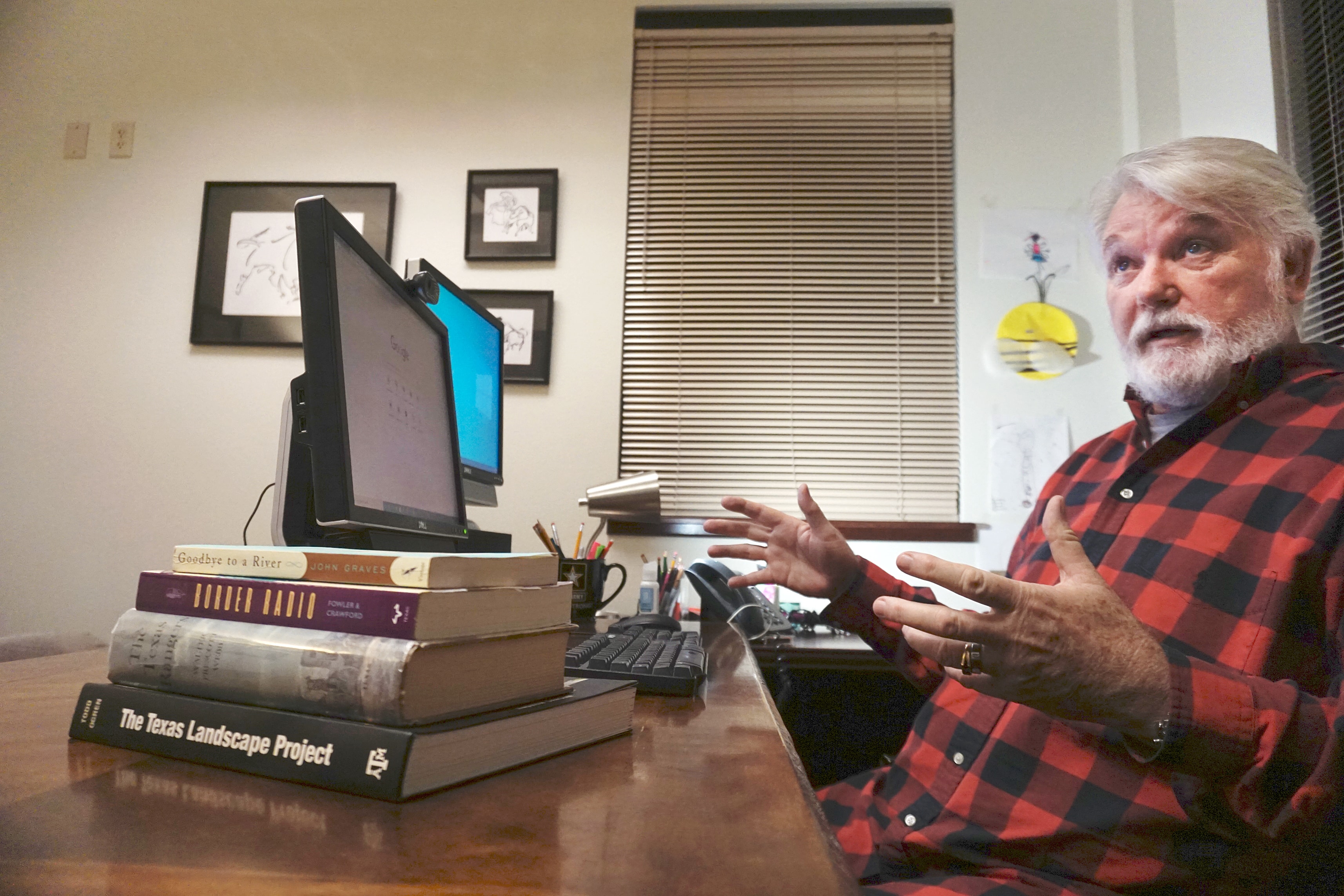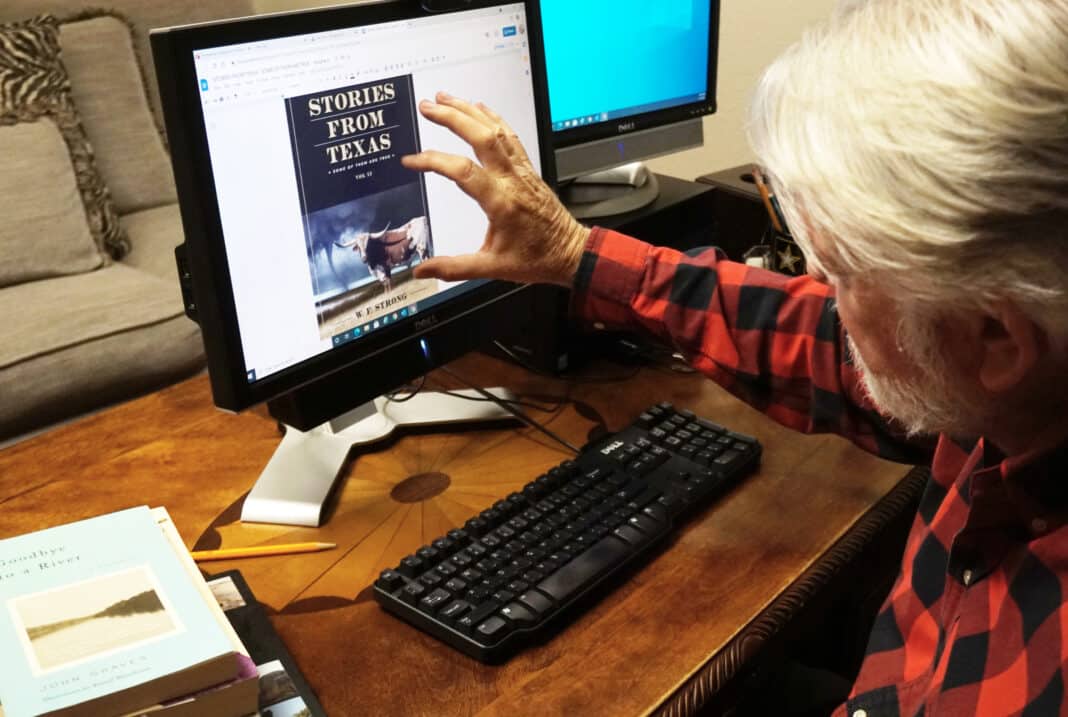BROWNSVILLE — Just a few days after W.F. Strong, a communications professor at the University of Texas Rio Grande Valley, published “Stories from Texas: Some of Them Are True Vol. II” the book reached Amazon’s No. 1 new release in the West South Central United States Travel Books category.
The local professor divides his time writing for Texas magazines, recording his podcast with the same name as the book and researching stories that are related to Texas. His new book is a collection of 70 stories from the radio series that range from inspirational to humorous.
“The first book was very successful, and people asked for it. They said ‘What are you doing for the second book? And you know, there is no shortage of stories about Texas, historical and otherwise.” Strong said.
“I’ve been doing the radio stories for three years now, beyond the first book. So, I have quite the collection of stories. And I have extensions of those. … These are longer and more detailed. In print, I can do a better job in telling the whole story.”
Strong said for the second book he decided to package the new set of stories in a different way. This time, each one of the 70 stories has an origin introduction where he writes where the story came from, how he came to write it or where he heard it.
This book also deals more with the deeper Texas story. Strong said this time he decided to include The Alamo, which he describes as ground zero of Texas liberty.
“It’s a sacred story and I didn’t feel like touching it in the first one because it is so sacred. I wondered what I could add. It’s been told so many ways in so many different forms, in thousands of books, so what could I add?” he said.
“And then I found an angle. I felt I had something to say. Something that was, if not unique, at least a perspective that’s fresh.”

When it comes to the stories, he said this time he wanted to do a better job covering the contribution to Texas history and culture by minorities. An example of this is the story he wrote about Barbara Jordan and her role in the Watergate Scandal. Strong describes her opening address to the Watergate committee as the most beautiful piece of oratory, and since it is a book about Texas, he also included the unique role that she played in the state’s history.
“Usually the stories that I enjoy the most are the ones that take me places that are unexpected. I start out on a story and I don’t expect for it to keep yielding an abundant harvest. Yet, they keep surprising me,” he said.
But why is it important to continue writing and telling these stories? When asked this, Strong said because, just like any other author that writes about history, they can’t let these stories die. To catch the interest of the younger generation, Strong said he put a modern spin to entertain as they learn and so that the reader is able to connect the stories to their lives in a fun way.
“It always seems to me that if you live with just the here and the now, is like being on an ocean without realizing there’s 3,000 feet of depth beneath you,” he said. “There’s a lot that has happened before your time.”
Strong was also invited as a guest speaker at the dedication ceremony for the new stamp honoring the Japanese Nisei soldiers of WWII at the Houston’s Holocaust museum.
“The Japanese Nisei Association believes that I was somehow instrumental in helping to get this stamp created,” he said.
“It tracks back to a story that was published in my first book and was of course on Texas Standard where I essentially recorded a tribute to the Nisei who saved the Texas battalion in World War II from being slaughtered by the Germans. They were all subsequently made honorary Texans. So I will be there to formally thank them for all Texans for a great debt we can never repay.”
As far as books go, Strong said they will continue to be around despite the practicality of e-readers such as the kindle. He said about 90 percent of his publications are read in print and only 10 percent are Kindle and audiobooks.
“People want the physical book. …When it comes to reading, people love the smell of print, they love the feel of the book, the textual nature of it, the beauty of the cover. I don’t think it’s going away,” he said.
“There was prediction, 15 years ago they said ‘We won’t have books anymore, it will all be electronic’ but people want the books. I think the future is bright for books.”





